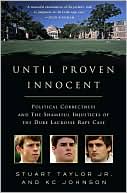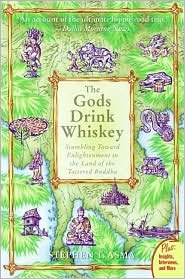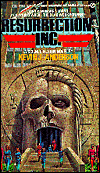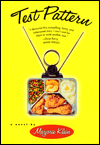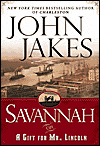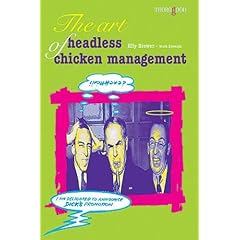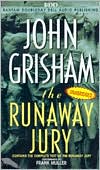 The Runaway Jury. This is a story about tobacco litigation and a juror with a rather specific plan in mind.
The Runaway Jury. This is a story about tobacco litigation and a juror with a rather specific plan in mind. We all know what Grisham is capable of and what he's good at, and this is a great yarn. The book may be 400+ pages long but it reads quickly and, like any good thriller, you want to keep reading and find out what happens next. Nothing new or unusual here. This isn't the greatest thriller in the world. It's probably not the greatest legal thriller in the world, and probably not even Grisham's best. But it's good enough, and that's good enough. I enjoyed it, and you can assume if you've read The Firm or any of his other works and enjoyed them, you'll like this one, too.
My favorite thing about The Runaway Jury was that the nasty bad evil character is actually likable. He's not really evil except in a somewhat esoteric sense, and he's surrounded by worse people anyway; he's just a mercenary who lets himself get excited about what he does. It's nice to see that. You know he's a bad apple and the people he works for are unethical and deserve what's coming to them, but by the middle of the book I really found myself liking him. He's sort of like a kid. It's nice to see somebody really enjoy their work, even if their work is very very naughty indeed.
I followed that up with
 Skipping Christmas. This book was made into a movie last year, or maybe in 2005, called "Christmas with the Kranks," starring Tim Allen and Jamie Lee Curtis. You may have seen it, although not too many people did and it was poorly reviewed. I talked to somebody while I was reading it this season who thought the movie might have been better if they'd made it with a couple of b-list actors in the starring roles, because then they might have been able to stick to the book a bit more and not cater to the whims of the big names. I don't know. I didn't see the movie.
Skipping Christmas. This book was made into a movie last year, or maybe in 2005, called "Christmas with the Kranks," starring Tim Allen and Jamie Lee Curtis. You may have seen it, although not too many people did and it was poorly reviewed. I talked to somebody while I was reading it this season who thought the movie might have been better if they'd made it with a couple of b-list actors in the starring roles, because then they might have been able to stick to the book a bit more and not cater to the whims of the big names. I don't know. I didn't see the movie.The book is charming; it starts out reasonably enough, the main characters get in suitably over their heads, but it ends with a nice heartwarming Christmas moral. Actually it's pretty standard stuff, but it's a nice ride and when Grisham published it the story was pretty fresh. You find yourself wanting to bop Luther over the head a couple times, though--just give in on this or that, you can put the dang Frosty up and get a tabletop tree so the neighbors won't talk and then you won't seem like such a nutjob. But so it goes. Some people become more fervent in their beliefs the more they're challenged on them, true believers, and Luther is one. Doesn't make him a grinch but he sure can come across that way from time to time.
Funny though: the book is structured like, and written in a tone befitting, a legal thriller. More noticeable to me perhaps as I'd just finished The Runaway Jury, but it was occasionally a bit distracting. I wish I could cite specific examples from the text, but I think it was more a feeling than anything specific. Still, if you haven't read this, don't let the lousy movie dissuade you. It's a fun Christmas story and a quick read, just right for this crazy season.

